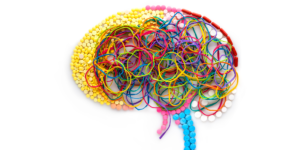It is always the hormones. The cranky teenager going through puberty, the miracle of birth and the disappearing hairline, none of these would happen without our body’s chemical messengers. Hormones are somewhat the chemical equivalent of a computer code. The nervous system stimulates the endocrine glands to send hormones via the bloodstream to control and guide nearly every function in our body. These messengers travel to different organs or tissues and tell them what to do, how to do it and how long to do it. Our metabolism, mood, growth, development and sexual functions are all affected by hormones.
Our body works like a symphony, as long as everyone plays in tact everything is fine. The same applies to our hormones, everything has its time, place and amount. It is a little like love and oxygen, “You get too much, you get too high. Not enough and you’re gonna die”. The right balance of hormones is crucial for a healthy development.
From conception to our last breath, our whole life cycle depends on hormones. Growth hormones dictate our growth during childhood, as the name implies, but they also play a large role in our adult life, as you can read in this related article. Adrenaline puts our bodies in a state of alert in stress situations and insulin regulates our bodies metabolism, providing our cells with the necessary energy. Our body is designed to keep things in balance, it is like a highly complicated factory that relies on all its components to work in sync to function properly. But sometimes hormone levels can change and this imbalance can have serious side effects.
In the course of a lifetime hormone levels are constantly changing, adapting to our age and needs. Most of the time it is part of the big plan, it wouldn’t work out well if we had the same high level of sexual hormones we have in our teens throughout our adult life, not much would get accomplished. The problems start when the hormone levels are not intended by nature.
Adrenaline levels peak when we are under stress or danger so that we can either fight or flight better. But chronic stress and the constant high levels of adrenaline can cause serious health problems.
Here is a short list of the more common hormone related disorders or endocrine disorders, that you probably have already heard of.
Diabetes – A disease in which blood sugar levels are too high due to little or no insulin in your blood. High blood sugar levels can damage your eyes, kidneys, nerves and also cause heart disease.
Osteoporosis – A disorder that occurs when your body absorbs more bone than it produces. It is commonly associated to postmenopausal women but nearly one out of five cases are men.
Weight gain or loss – Although weight gain or loss is mainly dependant on your diet and amount of activity, there are hormonal disbalances that can affect your body weight. For example a low thyroid level can cause sleepiness, tiredness and constipation that typically cause weight gain. Also high insulin levels can cause weakness, anxiety, fatigue and poor concentration which a lot of people relate to hunger, causing them to eat more than their body needs, sometimes worsening the situation.
The list of symptoms related to hormonal imbalance is long, but luckily in most cases a hormone therapy can help. If you have any doubts about the cause of any symptoms you might have, visit an endocrinologist to see if they are hormone related.








